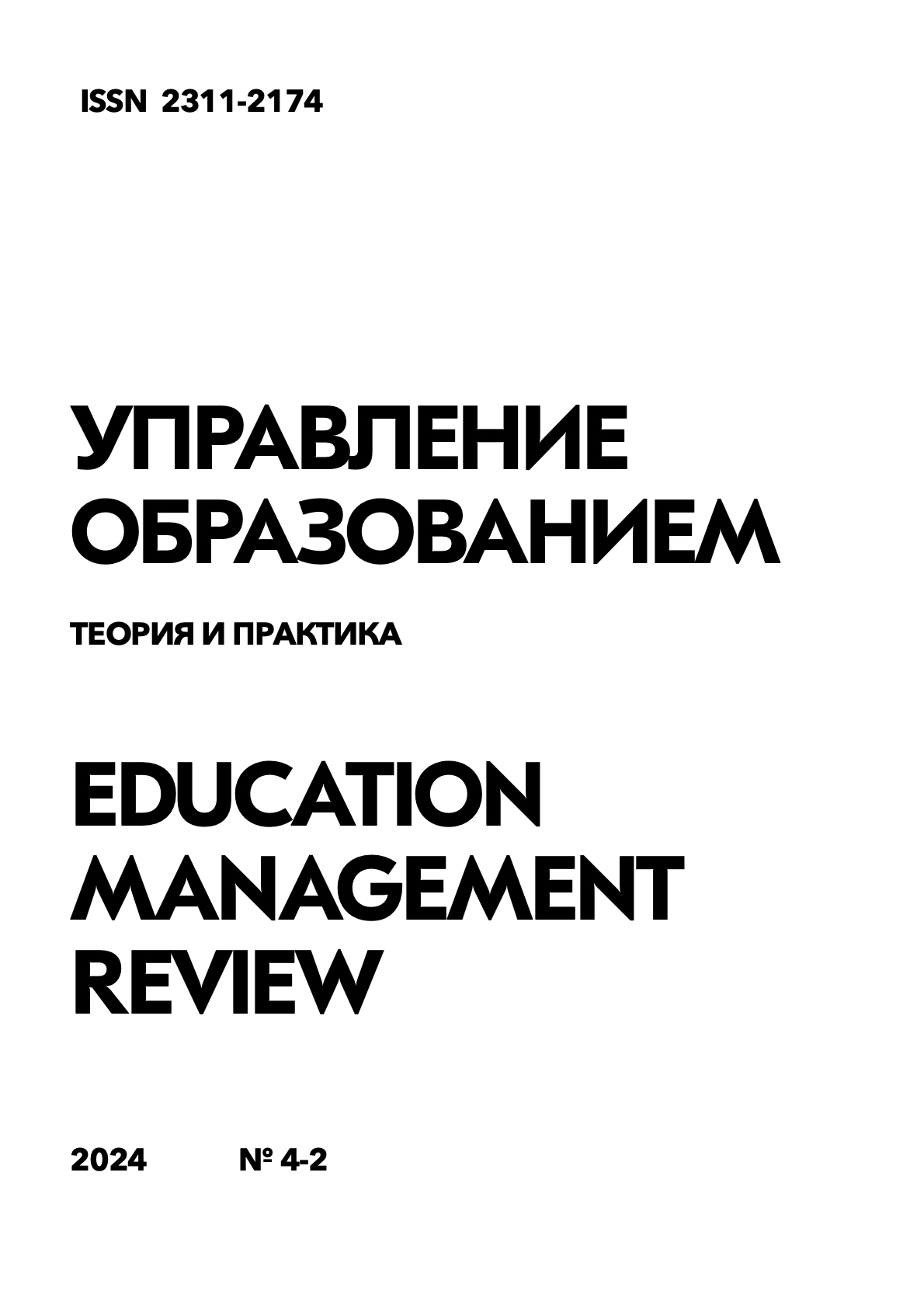Pedagogical technology for reducing smoking among students using data technologies
Keywords:
smoking prevention, students, innovative technologies, interactive methods, gamification, prevention effectivenessAbstract
Smoking remains a serious problem among students, negatively affecting health and academic performance. The development of effective pedagogical prevention technologies using data analytics seems to be a promising area of research. The purpose of the work is to theoretically substantiate and experimentally test the pedagogical technology of reducing smoking among students based on data-analytical methods. The research was based on a set of theoretical (analysis, synthesis, modeling) and empirical methods (survey, testing, experiment). The empirical base included 450 students from 5 universities in Moscow. Data on smoking patterns, motivation to quit, and individual psychological characteristics of respondents were collected. The experimental testing of the developed technology was carried out for 6 months. A pedagogical technology integrating data mining methods, personalized coaching and gamification is proposed. The technology allows students to segment by smoking patterns, predict risks and target preventive effects. In the experimental groups, the number of smokers decreased by 24%, and the average number of cigarettes smoked by 36%. There has been a steady increase in motivation to quit smoking. Discussion. The results obtained are of high practical importance, opening up the possibility for scaling technology in universities. The theoretical value is associated with the expansion of scientific ideas about the potential of data analytics in the pedagogical prevention of addictions. It is advisable to direct further research to improve the accuracy of predictive algorithms and strengthen the gaming component of the technology.
References
Александров А.А., Александрова В.Ю., Ваганов А.Д. Профилактика курения среди подростков и молодежи: проблемы и пути решения // Профилактическая медицина. 2019. Т. 22. № 2. С. 8-14.
Батенко Е.М., Куторга А.А. Что вреднее: парить или курить? // Физическая культура и спорт в жизни студенческой молодежи: мат. 3-й Междунар. науч.-практ. конф. Воронеж: Научная книга, 2017. С. 425-429.
Бусыгина Н.П. Методология качественных исследований в психологии. М.: ИНФРА-М, 2020. 304 с.
Голобокова Я.А. Развивающий потенциал интерактивных методов обучения в процессе формирования профессиональных компетенций обучающихся в военных образовательных организациях // Современное педагогическое образование. 2020. № 3. С. 92-98.
Ерохина Н.А., Черевишник Н.Н. Актуальные проблемы здоровья и организация здорового образа жизни молодежи // Вестник Саратовского государственного социально-экономического университета. 2020. № 2 (81). С. 153-157.
Зимняя И.А. Педагогическая психология. М.: МПСИ, МОДЭК, 2016. 448 с.
Казаков Ю.Н. Моделирование условий осознания задач самостимуляции резервов здоровья студента // Мир психологии. 2018. № 2 (94). С. 216-229.
Карасева Т.В., Лощаков А.М. Целостный подход к формированию личности безопасного типа в системе высшего образования // Известия Волгоградского государственного педагогического университета. 2022. № 3 (166). С. 19-24
Козлов А.В., Шилов С.Н. Профилактика наркомании и алкоголизма в студенческой среде: опыт реализации психолого-педагогической программы // Современные проблемы науки и образования. 2015. № 5. С. 275-281.
Литовченко О.Г., Литвинова Н.С., Кошкарова Н.И., Тостановский А.В. Образ жизни студентов как фактор здоровьесбережения // Образовательный вестник «Сознание». 2021. Т. 23. № 11. С. 20-29.
Мартынова Т.Н., Еремина А.А. Формирование здорового образа жизни студентов как приоритетное направление молодежной политики // Власть. 2017. Т. 25. № 11. С. 59-64.
Павлова И.В., Герман Е.В., Антипин В.Б. Профилактика аддиктивного поведения студенческой молодежи в вузе // Психопедагогика в правоохранительных органах. 2013. № 3 (54). С. 46-49.
Попов Л.М., Ибрагимова Е.Н. Сверхнормативная деятельность как проявление субъектности студентов // Образование и саморазвитие. 2013. № 1(35). С. 84-90.
Русскова Ю.Н. Интерактивные технологии профессионального обучения как средство формирования профессиональных компетенций у курсантов и слушателей образовательных организаций // Инновации в образовании. 2019. № 8. С. 89-96.
Терентьева О.С., Дерябина Г.И., Лернер В.Л. Валеологическое сопровождение учебного процесса в высших учебных заведениях // Вестник Тамбовского университета. Серия: Гуманитарные науки. 2019. Т. 24. № 181. С. 86-95.
Чеверикина Е.А., Грязнов А.Н., Шамсутдинова Р.В. Превенция табакокурения в студенческой среде: обзор эффективных практик // Казанский педагогический журнал. 2020. № 6(143). С. 193-200.
Leventhal A.M., Zvolensky M.J., Schmidt N.B. Smoking-related correlates of depressive symptom dimensions in treatment-seeking smokers // Nicotine & Tobacco Research. 2011. Vol. 13(8). рр. 668-676.
Marczewski A. Gamification: a simple introduction. N.Y., 2013. 153 с.
Noar S.M., Rohde J.A., Horvitz C. Adolescents' receptivity to E-cigarette harms messages delivered using text messaging // Addictive Behaviors. 2019. Vol. 91. рр. 201-207.
Sergeeva M.G., Micheeva N.Ph., Karavanova L.Zh., Stanchuliak T.G., Varlamova I.Yu., Akhmet-shina Yu.V., Chauzova V.A. The technology of professional teaching the simulative company as a complex of imitative teaching methods // Xinan Jiaotong Daxue Xuebao. 2020. Vol. 55. № 1. рр. 20-33.
Tavolacci M. P., Ladner J., Grigioni S., et al. Prevalence and association of perceived stress, substance use and behavioral addictions: a cross-sectional study among university students in France // BMC Public Health. 2013. Vol. 13(1). рр. 724-731.
West R. Tobacco smoking: Health impact, prevalence, correlates and interventions // Psychology & Health. 2017. Vol. 32(8). рр. 1018-1036.
Zavyalova M.S., Kalinichenko E.B., Ivanova L.M., Razdobarova M.N. Universal competence of intercultural interaction in learning a foreign language in professional activities // Mat. of Inter. linguistic scien. and prac. conf. Methods of Teaching Foreign Languages 2.0: Real vs. Virtual. SHS Web of Conferences. 2021. рр. 02006.
Downloads
Published
How to Cite
Issue
Section
License

This work is licensed under a Creative Commons Attribution-NonCommercial-NoDerivatives 4.0 International License.




